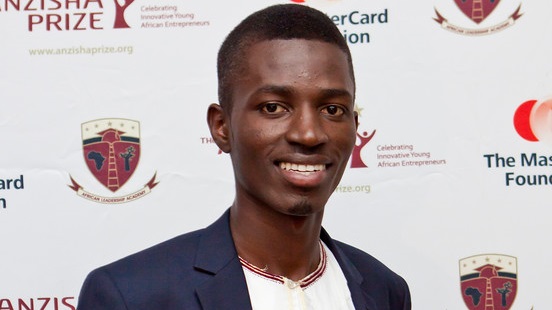In a move that signals a major leap forward in generative AI, OpenAI has quietly rolled out ChatGPT-5, its most advanced model to date….
How young entrepreneurs are unlocking finance in a harsh investment climate

When it comes into effect, the African Continental Free Trade Area (AfCTA) is set to create one of the world’s largest markets with 1.2-billion consumers and a total gross domestic product (GDP) of $2.5-trillion.
It is an entrepreneur’s dream and provides an opportunity for the new crop of African businesses to deliver their solutions to a continental market.
However, Africa’s very young entrepreneurs are worried that they may miss out on the opportunity brought forth by AfCTA. Although the appetite for investment has grown over the last two decades, this appetite has not been “adequately” satisfied.
Young entrepreneurs, mostly early-stage entrepreneurs, have found themselves locked out of traditional forms of finance from banks, venture capital or investment funds. Most have failed to access finance that they need to grow their ventures and serve greater markets.
Young entrepreneurs often find themselves locked out of traditional forms of finance
However, some of Africa’s very young entrepreneurs have been able to spur on despite these challenges.
Family and friends
An understanding of the supply side and demand side of finance has helped the successful entrepreneurs overcome the usual barriers and secure finance that has scaled their businesses, taking them from one stage of growth to another.
On the supply side, one of the early sources of finance that has helped many of Africa’s very young entrepreneurs launch their businesses has been their family and friends.
Anzisha fellow and founder of Uganda-based Ridelink Daniel Mukisa, has shared a similar experience.
In addition to his personal savings, he found the goodwill of friends and family helpful as he got capital he did not have to pay back.
Some young entrepreneurs are quite fortunate to get finance as gifts, in some cases finance from friends and family comes as debt or equity finance.
“Seed capital is hard to raise from traditional sources of finance like banks and investors,” says Mukisa.
He notes that the failure to raise finance from traditional sources for African entrepreneurs has had more to do with the stage the business is at.
“Most young entrepreneurs are still in the ideation stage and in need of seed capital. Seed capital is hard to raise from traditional sources of finance like banks and investors.
“These sources of capital support businesses that have reached a more mature stage in their lifecycle” shared Mukisa who has had to deal with the hassles of setting up and scaling his business in the last three years.
Young entrepreneurs have found the greatest support through grants and programmes such as the Anzisha Prize and the Tony Elumelu Foundation.
Such programmes have provided patient finance that helps young entrepreneurs with little or no revenue in the early stage of their business by completing their ideation process and early-stage development.
Mukisa also noted that by participation in such programmes, the entrepreneurs also “gain more than the seed capital.” The training and development they get is often invaluable and prepares them for the next stage of their business.
The investments that have been made by funds such as the Mastercard Foundation have demonstrated that when finance is patient and supportive, young entrepreneurs are able to scale their businesses to serve greater markets.
On the demand side, investors have often pointed out they have not backed many African businesses because there are not many “investment-ready” businesses on the continent.
They have expressed frustration at a lack of thoughtfulness from African entrepreneurs when it comes to their business and raising money.
Building systems
Ian Lessem, the managing partner of South African investment and advisory firm HAVAÍC, says raising money from a VC firm was not like raising “family, friends, fools” money.
Very young entrepreneurs such as Mukisa have stood out and have learnt from every disappointment. In his early days, Mukisa made attempts to raise finance from investors and financial institutions.
However, he was met with disappointment because his business was not packaged for investment, there was no collateral to give to banks and his business was not attractive to investors.
He realised that it was not that investors did not find the idea brilliant or innovative, they were rather deterred by the business’ lack of administrative system.
He has managed to turn that tide and has built systems that make his business ready for investors and financial institutions. Daniel has developed a great appreciation for creating systems that ensure professionalism in the business.
“You will be asked about systems. Do you have contracts with your suppliers, customers? In the absence of collateral, systems give banks (financiers) some security,” he noted.
Creating systems has helped him land loans from banks and hopefully will be able to launch his business into the next stage as he scales operations. Very young entrepreneurs in Africa are following this route.
A number of accelerators and incubators across the continent are helping African business develop systems that make them more eligible for investor funding.
The challenges that are often pointed out as the main constraints in access to finance for very young entrepreneurs are not unsolvable. Supply-side, as well as demand-side interventions, have been crucial in helping African entrepreneurs unlock finance for their businesses.
This story appeared originally on the Anzisha Prize’s blog on 1 June. See it here.
Featured image: Ridelink founder and Anzisha Fellow Daniel Mukisa (Supplied)
The Anzisha Prize seeks to fundamentally and significantly increase the number of job generative entrepreneurs in Africa, and is a partnership between African Leadership Academy and Mastercard Foundation. Through Ventureburn, they hope to share inspirational and relatable stories of very young (15 to 22 year old) African entrepreneurs and the people that support them. [learn more]

